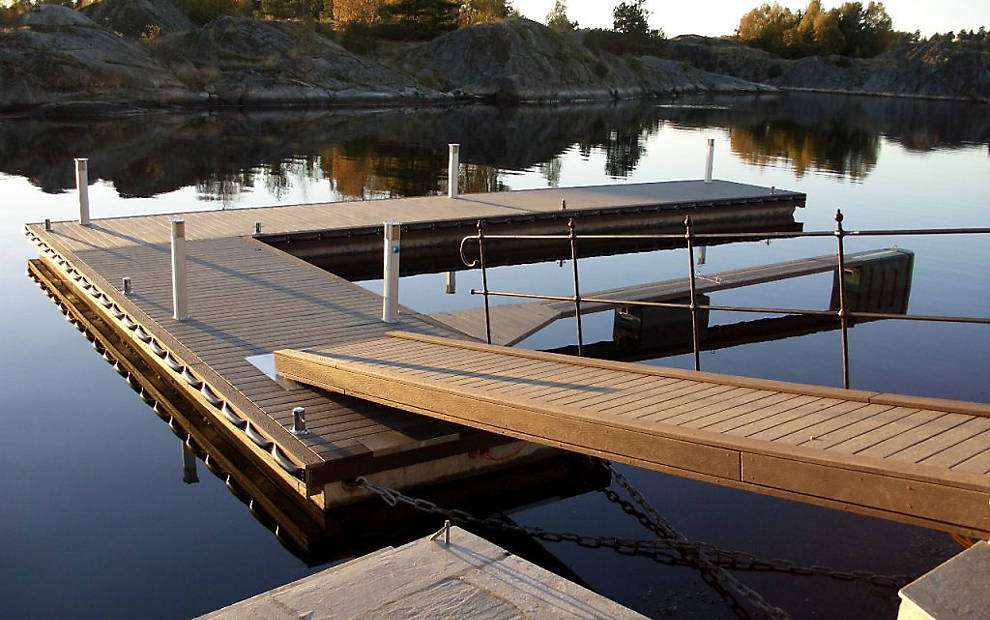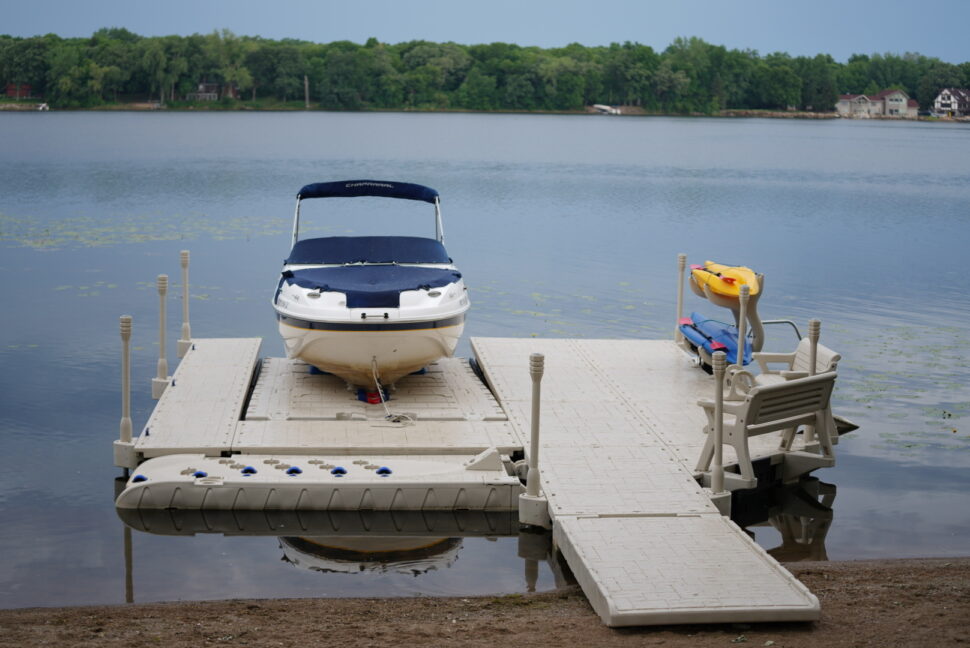Floating Docks: The Suitable Selection for Versatile Water Access
Floating docks existing a compelling service for a selection of water access requires, using versatility that goes beyond typical mooring choices. The modular nature of floating docks helps with customization, providing to specific requirements.
Advantages of Floating Docks
Floating docks deal numerous benefits that improve water access for various applications. Their ability to drop and rise with transforming water degrees makes them specifically beneficial in atmospheres with fluctuating tides or seasonal variants. This adaptability makes sure that vessels can quickly anchor without worry for the water's deepness, supplying a reliable platform for entertainment, industrial, and industrial uses.
Furthermore, floating docks are usually built from sturdy materials that withstand deterioration, making them suitable for long-lasting usage in aquatic settings. Their installment is typically less invasive than traditional fixed docks, minimizing the ecological impact and promoting quicker release (floating dock services). This adaptability permits easier relocation or reconfiguration according to user requirements or environmental adjustments
Safety and security is an additional key benefit; floating docks can give steady gain access to for individuals boarding or getting off from watercrafts and reduce the threat of accidents connected with unstable surfaces. They can be designed to suit a selection of accessories, such as cleats and fenders, improving functionality. On the whole, floating docks stand for an effective option for boosting water access throughout diverse fields while promoting security and environmental sustainability.

Sorts Of Floating Docks
Numerous kinds of floating docks accommodate different demands and environments, each developed with specific attributes to maximize capability. One of the most common types consist of modular docks, which include interlacing sections that enable for very easy modification and growth. These docks are optimal for entertainment use, as they can be customized to fit numerous watercraft dimensions and water conditions.
One more popular option is the fixed floating dock, which continues to be secured in position however drifts with altering water degrees. floating docks. This type is specifically fit for locations with very little tidal fluctuations, giving steady gain access to for angling or swimming. Furthermore, there are drive-on docks, which include a sloped style that permits watercrafts to quickly drive on and off, making them appropriate for personal boat and smaller sized vessels
For business applications, sturdy floating docks are available, created from strengthened materials to stand up to substantial tons and rough aquatic environments. Environment-friendly floating docks use lasting products and layouts to reduce ecological influence, frequently integrating features like greenery to sustain regional wild animals. Comprehending the numerous sorts of floating docks makes certain that users can select the most proper remedy for their particular demands.
Installation Refine Introduction
A successful installation of floating docks requires cautious preparation and focus to detail to guarantee ideal performance and security. The preliminary action involves evaluating the website problems, including water depth, current, and possible challenges. This assessment educates the choice of the proper dock materials and layout tailored to the certain environment.
Following, getting needed licenses is essential, as numerous jurisdictions have guidelines pertaining to construction on water bodies. The setup can continue when approvals are safeguarded. Begin by preparing the structure, which may entail anchoring systems or pilings customized to the dock type and neighborhood conditions.
Adhering to the structure arrangement, construct the dock areas according to additional info supplier requirements. Make sure that all components are safely attached and lined up to endure environmental anxieties. Position the dock in the designated location, guaranteeing it is level and secure.

Upkeep Tips and Finest Practices
After the installation procedure is total, continuous upkeep plays a crucial function in ensuring the long life and functionality of floating docks. Regular assessments need to be performed to recognize any type of signs of damage, degeneration, or wear - floating dock builder. Inspect for any type of loosened fittings, splits, or separation in the dock areas, as these can endanger structural stability
Cleaning the dock is essential to eliminate debris, algae, and other accumulation that can impact its look and safety and security. Utilize a mild stress laundry periodically to preserve sanitation without creating damage to the surface. Furthermore, applying a safety sealer every few years can assist enhance durability and stand up to ecological wear.
Take note of the mooring lines and supports, ensuring they are complimentary and protected from corrosion. Change any type of abject parts promptly to stay clear of threats. Seasonal modifications might likewise be necessary; during severe climate problems, rearranging or enhancing the dock can protect against damages.
Applications for Floating Docks
Floating docks offer a plethora of applications, satisfying both entertainment and business demands. In recreational setups, they provide seamless accessibility to waterways for tasks such as boating, fishing, and swimming. Their adjustable nature enables installation in varying water degrees, guaranteeing safe and stable access no matter tidal fluctuations.
Commercially, floating docks are crucial for marinas and waterside businesses. They facilitate the docking of vessels, enabling effective loading and discharging of goods. Their modular style allows for easy expansion or reconfiguration to fit changing service needs, making them optimal for boat leasings, Find Out More tour procedures, or angling charters.
Additionally, floating docks are utilized in ecological applications such as aquatic research and environment repair. They can work as systems for clinical studies, monitoring water high quality, or performing wild animals surveys without troubling delicate communities.
In industrial contexts, floating docks are employed in construction tasks, providing accessibility to hard-to-reach areas important site for equipment and workers. Their adaptability, longevity, and very little influence on the setting make them an optimal choice for a wide variety of applications, enhancing both performance and ease of access in various water-based environments.
Final Thought
To conclude, floating docks represent an optimum option for diverse water gain access to needs, owing to their versatility, durability, and modular layout. These frameworks assist in secure mooring for numerous applications while reducing environmental effect throughout installment. The lowered maintenance demands further enhance their functionality. Because of this, floating docks act as an important property for recreational, industrial, and environmental projects, making certain reputable accessibility to rivers and advertising sustainable practices in marine environments.
Floating docks present a compelling service for a selection of water access needs, using versatility that goes beyond typical mooring choices.Floating docks deal countless advantages that boost water accessibility for numerous applications. Generally, floating docks stand for an effective remedy for improving water accessibility across diverse markets while promoting security and ecological sustainability.
One more popular alternative is the stationary floating dock, which stays anchored in location yet floats with transforming water degrees.In final thought, floating docks represent an optimal option for varied water gain access to needs, owing to their versatility, sturdiness, and modular design.